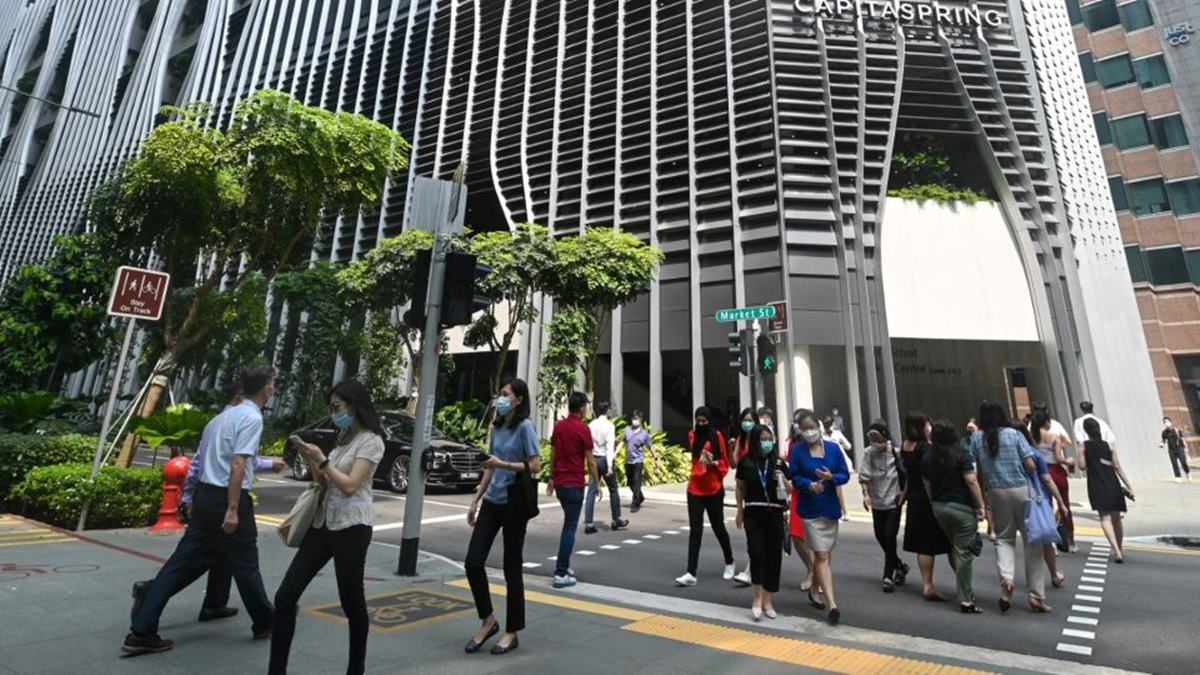Singapore’s business community is growing more cautious, with confidence slipping amid global trade uncertainty, higher operating costs, and a dimmer economic outlook. According to the Singapore Business Federation’s (SBF) National Business Survey 2025 – Manpower and Wages Edition, the Business Sentiment Index declined by 1.1 points, from 56.5 in Q1 to 55.4 in Q2 of 2025, signaling a softening mood across industries.
Even as concerns over the US tariffs have eased, businesses reporting a negative impact fell from 81% in April to 59% in July 2025, caution prevails. More businesses expect the situation to worsen (35%) than improve (14%) over the next year, reflecting a macro-economic environment marked by uncertainty and delayed growth, the report said.
“The survey findings reflect a more cautious business outlook,” said Kok Ping Soon, CEO of SBF. “This reinforces the need for companies to adapt quickly to cost pressures and shifting market dynamics.”
Businesses hit the brakes on fresh recruitment
Amid shrinking revenue expectations and hesitation to expand, only 36% of companies plan to increase their full-time workforce in the next 12 months, down from 40% in 2024. This marked reduction highlights the tightening labour market and the pressure on firms to operate within optimised manpower levels.
Sectorally, the hotels, restaurants and accommodations sector faces the sharpest drop in hiring sentiment, with its hiring outlook plummeting from 67.4 in Q1 to 51.6 in Q2. The traditionally labour-intensive industry is now grappling with dampened tourism and cost escalation.
While larger corporations maintain relatively stable hiring plans, small and medium-sized enterprises (SMEs) are more heavily affected. Their limited financial flexibility makes them more reactive to economic slowdowns and external shocks.
Pay and wage growth to cool down
In tandem with the hiring freeze, wage growth is also slowing, with only 59% of businesses planning salary increases, down from 64% in 2024. Meanwhile, wage freezes are becoming more common, rising from 35% last year to 41% in 2025, especially among SMEs.
Still, there’s a silver lining: lower-wage workers are bucking the trend. About 65% of businesses intend to raise their salaries, up from 64% in 2024, reflecting strong alignment with National Wages Council recommendations. However, this is also driven by policy expectations rather than economic optimism.
Firms cited market-rate salary pressures (42%), weak business performance (36%), and rising costs (34%) as major obstacles to more generous wage hikes.
Skilling a growing concern
While rising manpower costs remain the top concern for businesses, fewer are citing it this year (65% vs 75% in 2024). However, a new pain point has emerged, that is, upskilling and reskilling. The proportion of businesses struggling with talent development nearly doubled, from 25% in 2024 to 47% in 2025.
“There’s growing concern about the ROI of training investments,” the report noted, with businesses pointing to challenges such as limited backup manpower, tight operations, and unclear outcomes from training efforts.
Notably, both SMEs and large firms are leaning toward informal, non-structured training, indicating a potential disconnect between training programs and business needs. This could open the door for policy recalibration to better support practical, on-the-job skilling models.
Despite the national push for a skills-first hiring approach, only 18% of businesses have fully adopted this model. Among the majority who haven’t, about 40% are unsure if candidates with adjacent skills can meet job demands, and at least 32% fear it would require more training time than hiring based on prior experience.
Mixed reactions to policy changes: Wins and worries
Businesses welcomed the removal of the maximum employment period and the raising of the maximum employment age for work permit holders, with around one in three firms expecting operational benefits. However, the sentiment was more negative regarding S Pass qualifying salary hikes, which many say are squeezing labour budgets.
To adapt, businesses are tweaking their manpower strategies:
- 43% are recruiting more locals,
- 40% are increasing wages to attract them,
- 35% are outsourcing to local third-party contractors.
This shift may bolster local employment in the long run, but it comes at the cost of higher operating expenses for many firms.
Career planning and job redesign: Underutilised but promising
Only about 30% of businesses have provided career planning in the past year, but those that did saw clear benefits:
- 77% reported better morale,
- 62% experienced more effective workforce planning,
- 58% noted higher retention.
Similarly, 30% of businesses have engaged in job redesign efforts, focusing on productivity (63%), digitalisation (40%), sustainability (34%), and internationalisation (15%). These forward-looking strategies could be pivotal in weathering future disruptions.
While the softening indicators are noteworthy, the current data suggests that businesses are not panicking, but instead adopting a wait-and-see approach, especially in areas of hiring and wages. The optimism around skilling for low-wage workers, coupled with a pivot toward digital transformation and workforce innovation, hints at a longer-term mindset setting in.
Kok emphasised that businesses should seek out industry and government resources available to help them navigate the tight economy, adding, “SBF will work alongside our ecosystem partners to help local enterprises build resilience, manage rising costs, and position themselves for long-term growth.”




















